Alabama’s Terry Moorer becomes first black judicial nominee confirmed under Trump

The U.S. Senate has confirmed another one of of President Donald Trump’s judicial nominees from Alabama. Judge Terry F. Moorer of Greenville, Ala., earned confirmation in a unanimous voice vote in the Senate on Tuesday afternoon to be a U.S. District Judge for the Southern District of Alabama. He will become the first African American judge to serve in that post. He is also the first black judicial nominee to earn confirmation during the Trump administration. Sworn in as Magistrate Judge in 2007, Moorer is a retired Col. in the Alabama National Guard, and was the primary architect of the Alabama Code of Military Justice. He has a J.D. degree from The University of Alabama Law School, a B.A. degree from Huntingdon College, as well as A.A. degree from Marion Military Institute. Prior to his appointment as Magistrate Judge on the U.S. District Court for the Middle District of Alabama, he was an Assistant U.S. Attorney in the Middle District of Alabama from 1990-2007. From 2001-2007, he served as the Lead Task Force Attorney for the Organized Crime Drug Enforcement Task Force, where he was responsible for coordinating the investigation of and prosecution of major narcotics trafficking. “Judge Terry Moorer is well-suited to be a U.S. district judge in Alabama’s southern district,” said Alabama U.S. Senator Richard Shelby. “His decade of experience serving as a magistrate judge, along with his devotion to upholding the constitution make him fit to serve in this prestigious role. I congratulate Judge Moorer and am confident that our nation will continue to benefit from his dedication and service.” In November 2017, Moorer appeared before the Senate Judiciary Committee for the consideration of his nomination. During the hearing, Judge Moorer expressed that “a judge must be courteous and respectful to parties and attorneys” and “patient, open-minded, tactful, and fair to all parties.” Moorer continued by relaying that a “judge should listen carefully to the legal arguments, research the law, and then rule promptly based on the facts and the law.” He concluded by explaining that a “judge must decide matters based on the facts and law,” and while “a judge is still a person and cannot be expected to fully divorce themselves from all life experiences, their life experiences should play no role in the decision-making process.”
Mississippi lawmakers approve bill to create a state lottery
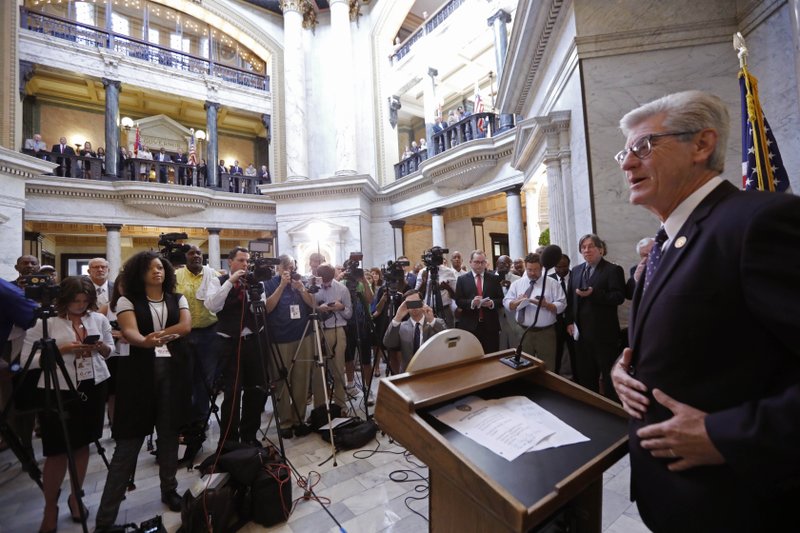
The Mississippi House reversed itself Tuesday and passed a bill to create a state lottery in the Bible Belt state where churches have long opposed it. The vote came during a special session, less than 24 hours after the House originally voted to kill the bill that the state’s Republican governor promises to sign into law. There was no debate Tuesday as a few representatives changed their votes from no to yes. Mississippi is one of six states without a lottery, and Gov. Phil Bryant had been pushing lawmakers for more than a year to create one. Supporters estimate a lottery could generate tens of millions of dollars annually, and Bryant says he wants the money to help pay for repair to crumbling highways and bridges. “This is a historic day in Mississippi,” Bryant said on Twitter. “Mississippi lawmakers rose to the occasion.” Supporters said it would take about a year to get a lottery up and running. The bill was opposed by politically powerful Baptist and Pentecostal groups and some people who called it a regressive tax on poor people in one of the poorest states in the U.S. The state’s influential casino lobby did not oppose a lottery but fought some lawmakers’ ultimately unsuccessful efforts to allow video lottery terminals in places like truck stops. Bryant pointed out that three of the four states bordering Mississippi have a lottery, and Mississippi residents drive to Louisiana, Arkansas and Tennessee to buy millions of dollars of tickets each year. The lottery bill passed the Senate Monday night but it failed initially in the House with 60 opposed and 54 in favor. The House subsequently passed the bill Tuesday with 58 in favor and 54 opposed. Tuesday was the fourth day of a special session that Bryant called, asking lawmakers to put millions more dollars into highways and bridges. More than 400 of Mississippi’s city and county bridges are closed because they are in bad repair. The state Department of Transportation says it needs at least $400 million more per year just to keep state highways from deteriorating. Supporters of a lottery estimate it could generate about $40 million for the state in the first year and $80 million in subsequent years. The Senate and House last week passed different versions of a lottery bill, and top lawmakers spent much of Monday working out the differences. The two chambers must agree on a single version before it can go to the governor. Republican Rep. Bill Denny said Tuesday that he has opposed attempts to establish a lottery for more than two decades, but he voted in favor this time because his constituents in Jackson want it. “Every time I go to the grocery store, ‘Bill, we need the lottery,’” Denny said. Democratic Rep. Greg Holloway of Hazlehurst voted against the bill initially and then for it Tuesday. “My people have contacted me,” Holloway said. “They want the lottery and I want them to have what they want.” Democratic Rep. Jeramey Anderson of Escatawpa voted for the bill Monday and against it Tuesday. He said he wanted a guarantee that a significant share of lottery money would go to education. “Killing the bill would have given us a better opportunity to negotiate,” said Anderson, who is running for a U.S. House seat. “Unfortunately, that didn’t happen. I do support the lottery, but I support public education, as well.” Republished with the permission of the Associated Press.
JeffCo Democrat files complaint with DNC over Nancy Worley re-election

A Jefferson County Democrat has filed a complaint with Democratic National Committee (DNC) officials over the Alabama Democratic Party’s election of officers earlier this month. Ralph Young, a member of the Jefferson County Democratic Party, filed a seven-page complaint that Alabama Democratic Party Chairwoman Nancy Worley did not follow proper procedures when calling the meeting that led to her re-election. Young claims she gave inadequate notice and failed to comply with diversity requirements for officers. “I’m a bit of a rules wonk and I have concerns about how the election was done,” Young told the Montgomery Advertiser. “I don’t believe it was done in a fair fashion. I think there are a number of procedural issues that could have decided differently.” Jones has found herself under fire recently. On Monday, Susan Cobb, chairwoman of the Marion County Democratic Executive Committee, announced that she is suing Worley for allegedly removing her from the party’s website and restructuring the committee, effectively removing Cobb from office. The DNC confirms the complaint has been received and has been passed along to the Credentials Committee.
Gary Palmer caught in Jeff Sessions, Donald Trump crossfire
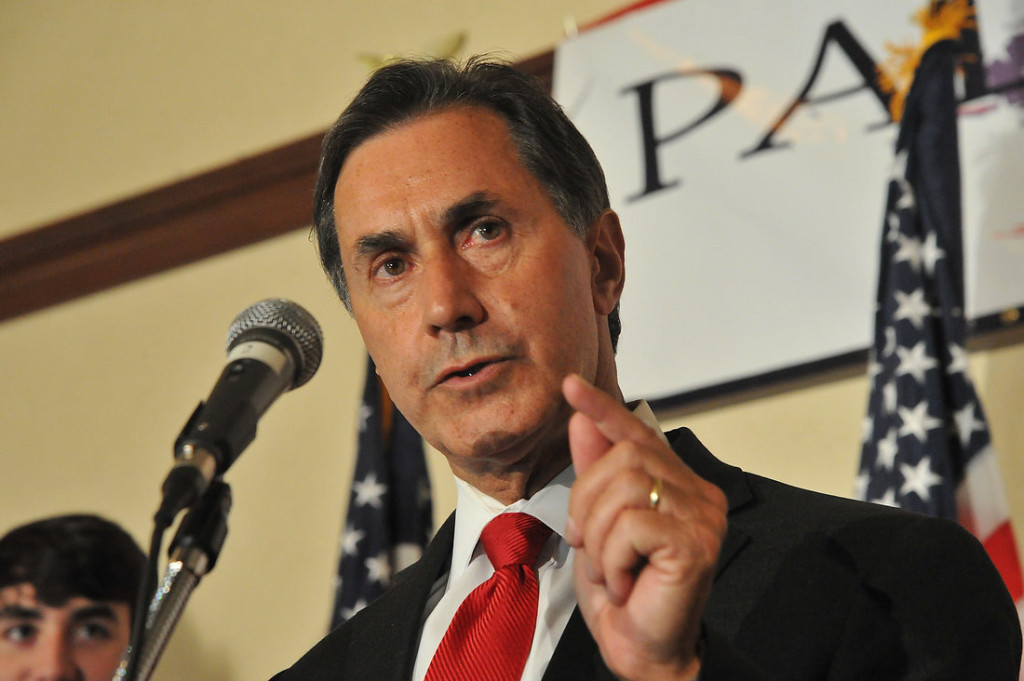
Alabama 7th District U.S. Rep. Gary Palmer has been caught in the crossfire between President Donald Trump and Attorney General Jeff Sessions. Last week, Trump fired several barbs at Sessions, telling Fox news channel’s “Fox & Friends” that Sessions “took the job and then he said, ‘I’m going to recuse myself.” “[He] never took control of the Justice Department and it’s a sort of an incredible thing,” Trump continued. Sessions then fired back at the president, saying that the Justice department would not be “improperly influenced by political considerations.” Rachael Bade, a Politico reporter and CNN political analyst, appeared on CNN Friday, saying she contacted Palmer to speak with him on the subject. “I called Gary Palmer, who is a Republican from Alabama, close with Sessions, yesterday to get his take on this sort of back and forth,” Bade said according to CNN Transcripts. “At one point Gary Palmer was very adamantly defending and blasting his colleagues who were in any way criticizing Sessions. But Gary Palmer told me he has his own problems with Sessions. And he specifically listed some of those things that the president was tweeting about this morning regarding document production to Congress, Rod Rosenstein perhaps not being the best person to be working in the Justice Department, according to him.” “And he was unhappy with certain things that Sessions was doing,” Bade continued. “So I just — I think it’s really interesting, the conversation is changing. And I don’t think that’s a good sign for Sessions. It’s a matter of time, I think, before he goes.” Palmer responded on Twitter by calling out CNN, and denying that the story was true. “A recent CNN news story mischaracterized my trust in Attorney General Jeff Sessions. He has my full trust and I think he’s done an excellent job in de-politicizing the DOJ. The DOJ has many ongoing investigations and Jeff Sessions will ultimately be judged by their outcomes,” Palmer tweeted. “As it stands, Jeff Sessions is doing his job when the only leaks are coming from those being investigated. While I share the President’s concerns about the Russia investigation and believe it should end, Jeff Sessions is recused from that,” he continued. “On the other hand, I think Rod Rosenstein has not represented the DOJ well, especially regarding Congressional oversight and document production. This is what I told the CNN reporter; CNN reinterpreting my comments for the sake of headlines is the very definition of fake news.” A recent CNN news story mischaracterized my trust in Attorney General Jeff Sessions. He has my full trust and I think he’s done an excellent job in de-politicizing the DOJ. The DOJ has many ongoing investigations and Jeff Sessions will ultimately be judged by their outcomes. — Gary Palmer (@USRepGaryPalmer) August 24, 2018 As it stands, Jeff Sessions is doing his job when the only leaks are coming from those being investigated. While I share the President’s concerns about the Russia investigation and believe it should end, Jeff Sessions is recused from that. — Gary Palmer (@USRepGaryPalmer) August 24, 2018 On the other hand, I think Rod Rosenstein has not represented the DOJ well, especially regarding Congressional oversight and document production. This is what I told the CNN reporter; CNN reinterpreting my comments for the sake of headlines is the very definition of fake news. — Gary Palmer (@USRepGaryPalmer) August 24, 2018
New $6M water research grant could protect lives, property of Alabamians

Alabamians lives and property may soon be better protected thanks to a new federal grant to help improve the nation’s water prediction capabilities and forecasts. Alabama U.S. Senator Richard Shelby on Tuesday announced that the National Oceanic and Atmospheric Administration (NOAA) has granted $6 million for water prediction research efforts at the University of Alabama (UA) in partnership with the University Corporation for Atmospheric Research (UCAR). “This is excellent news for the University of Alabama, our state, and the nation,” said Shelby. “The research made possible by this $6 million grant will drive scientific advances to help improve the nation’s water prediction capabilities and forecasts. I am proud to have helped secure this funding that will better protect the lives and property of all Americans.” This funding will support the efforts of UA, UCAR, and NOAA researchers to develop 21st century radar technologies aimed at improving measurements of snow and soil moisture. These improved observations will have the opportunity to advance the predictive and prognostic ability of future versions of the National Water Model, the nation’s first-ever continental-scale hydrologic prediction system operated at the National Water Center in Tuscaloosa, Ala. Scientists at the National Water Center will utilize the data produced by the radars to strengthen research and grow the nation’s water prediction capabilities. “This award further demonstrates the University’s commitment to cultivating a research culture that will have a far-reaching impact,” said Dr. Stuart Bell, University of Alabama President. “We are very pleased to see our research efforts making a significant difference for water resources and for the nation at large.” The university will receive $5 million of the funding while UCAR will receive $1 million to support administration and management of the grant.
GOP slows efforts to rename Senate building for John McCain

A proposal to rename the Senate’s oldest office building for John McCain has received bipartisan support, but the effort appeared to slow Tuesday as Senate Majority Leader Mitch McConnell announced he will form a bipartisan panel to solicit ideas on the best way to honor the late Arizona senator. McCain “meant so much to so many of us,” inside the Senate and out, McConnell said, adding: “The Senate is eager to work on concrete ways to continue this momentum and provide a lasting tribute to this American hero long after this week’s observances are complete.” Besides the proposal to rename the Russell Senate Office building, lawmakers may consider naming a committee room used by the Senate Armed Services Committee after McCain, who was the panel’s chairman, McConnell said. Another idea is to add McCain’s portrait to a reception room right off the Senate floor, joining such giants as Henry Clay, Daniel Webster and Robert Taft. Only seven senators are honored with portraits there. McConnell was careful not to make a specific recommendation. Senate Democratic leader Chuck Schumer had proposed renaming the Russell Senate Office building in McCain’s honor after the veteran Republican senator died Saturday from brain cancer. The 109-year-old building is named after Sen. Richard Russell, a Georgia Democrat who, like McCain, chaired the Armed Services Committee. Russell, who died in 1971, was a segregationist and led Southern opposition to anti-lynching bills and other civil rights legislation, including the 1964 Civil Rights Act. Previously known simply as the Senate Office Building, it was renamed in Russell’s honor the year after his death. While some Republicans are receptive to renaming the building, many urged caution. Republican Sen. Chuck Grassley of Iowa, who served with McCain for 31 years, said Monday he was in favor of “naming almost any building” for McCain, but added, “I’m not sure that I would make a decision on a specific building at this point.” Republican Sen. Jeff Flake of Arizona, who co-sponsored the measure, said he does “not want to get out ahead” before he talks to McCain’s family. “There are a number of proposals coming forward about ways to honor John McCain. I think this would be a particularly good one, but I want to make sure the family is OK with it,” Flake said. Georgia’s GOP Sen. David Perdue, whose own office was formerly used by Russell, said he’s unsure if residents back home would accept a name change for the building. “This is Washington. There’s going to be 50 percent for something and 50 percent against something,” Perdue said Tuesday. The Senate should spend time finding “the right way” to memorialize McCain’s service, Perdue said. “To knee jerk, to do anything — any suggestion — right now is premature,” he said. Republicans backed McConnell’s plan to study the issue, with some saying McCain himself would appreciate the GOP leader’s commitment to “regular order,” including the process of committee work. McCain “didn’t want ideas cooked up in some back room and sprung on the Senate,” said Sen. John Cornyn of Texas, the No. 2 Republican senator. Republican Sen. Lamar Alexander of Tennessee said that McCain deserves “a significant memorial” in the nation’s capital but that senators have time to decide what the best memorial is. Fellow Tennessee Republican Sen. Bob Corker said he was “all for” renaming the building in McCain’s honor but that “there’ll probably be some discussion about that” in both parties. “Russell is somebody that’s obviously a huge figure, but it is an era that’s gone by. We’re in a new era now,” Corker said Monday. “Who would want to vote against naming a building after somebody who just passed away?” Corker asked, before answering his own question. “There may be some curmudgeon that wouldn’t want to do that.” The proposal to rename the building drew resistance from some Southern senators. “You know Richard Russell was … from the South, and I’m sure not perfect like George Washington and everybody else in his days, but he was a well-respected senator,” said Republican Sen. Richard Shelby of Alabama. The idea is something “we have to think about,” he added. Sen Bill Cassidy, R-La., said he’d “rather find another way” than rename the Russell building. “I think Russell being named Russell is that generation of senators’ message to future generations,” Cassidy said. “What I don’t want is to establish a precedent so something named after John McCain is named after somebody else in the future.” Russell served in the Senate from 1933 until his death and was known as a “senator’s senator” because of his mastery of Senate rules. An ardent defender of the defense budget, Russell also was author of the School Lunch Act, which provides free and low-cost meals in public schools. Schumer, who worked closely with McCain on immigration and other issues, called McCain one of the “few truly great people” he’s met in public service. “His dedication to his country and the military were unsurpassed, and maybe most of all, he was a truth teller — never afraid to speak truth to power in an era where that has become all too rare,” Schumer said. Schumer called Russell “a towering figure in the Senate of his day” but an avowed opponent of civil rights and racial equality. “It is time we recognize that as the times change, so do our heroes,” Schumer said. The renaming proposal would not need approval from the House or from President Donald Trump, a longtime McCain nemesis. Republished with permission from the Associated Press.
Gates Foundation’s new school initiative awards $1.1M grant for JeffCo schools

Twelve schools in Jefferson County, Ala. are working together to improve 8th and 9th grade math through a Bill & Melinda Gates Foundation grant to the Southern Regional Education Board (SREB). The $1.1 million grant is one of 19 grants announced Tuesday by the foundation. SREB will use the grant to launch a network of 10 secondary schools that will focus on increasing the proficiency rates of Black, Latino, and low-income students on 8th grade math and 9th grade Algebra 1 in the Jefferson County part of Birmingham, Ala. “A poor start in high school math derails far too many students, but we can change that course if we find what works to prepare them,” said SREB President Stephen L. Pruitt. “By managing two networks — one urban and one rural — we will be able to learn and share critical lessons about improvement cycles within and across schools with similar challenges.” This summer, to understand the underlying causes of poor math performance, SREB began working with Jefferson County educators to collect data and conduct focus groups with students and teachers. Teams within and across schools are harnessing the power of the network to investigate problems and share solutions. Some have begun plan-do-study-act cycles to test strategies. Over time, promising solutions will be shared across the network to gather more data and further improve them. “We’re unpeeling the onion, figuring out why we’re not making progress, so teachers can find strategies for these individual students in these specific schools,” said Lauri Johnson, SREB organizational improvement director. “This is a singular opportunity to develop a continuous improvement mindset that focuses deeply on the needs of each student.” Urban and Rural Networks for School Improvement Jefferson County urban network schools Corner High School Corner Middle School Minor Middle School Minor High School Bragg Middle School Erwin Middle School Gardendale High School Oak Grove High School Irondale Middle School Shades Valley High School Hueytown High School Center Point High School Rural network 10 schools to be announced in late 2018 SREB and Jefferson County have partnered since 2015 on school improvement strategies across the district’s middle and high schools.
UAB to bring awareness to transgender rights

The University of Alabama at Birmingham (UAB) will host an event to bring awareness to the rights of transgender people in September. The Human Rights of Transgender Persons event will be held at the UAB Hill Student Center on Thursday September 13 at 6:00 p.m. Several guest speakers will be there to discuss issues facing the community, including Brianna Patterson, a transgender rights activist. According to the event’s Facebook description, Patterson is a “military veteran, former firefighter, and current graduate student who is working hard to change the narrative about Transgender people in the South.” Patterson is a member of the World Professional Association for Transgender Health, an educational organization devoted to transgender health. She first posted her story of overcoming discrimination in the work place on the Invisible History Project’s (IHP) website. According to the same site, the IHP is “designed to be a repository for the preservation of the history of LGBTQ life first in the state of Alabama and then the entire Southeast.” The UAB Special Collections Library is a partner of the project. Married couple, and screenwriters, Tony Phelan and Joan Rater, will also be speaking on how having a transgender son has transformed their lives. Phelan and Rater were both executive producers and writers for the popular hospital drama television show Grey’s Anatomy. For more information on the event click here.
Montgomery Board of Education member Durden Dean resigns
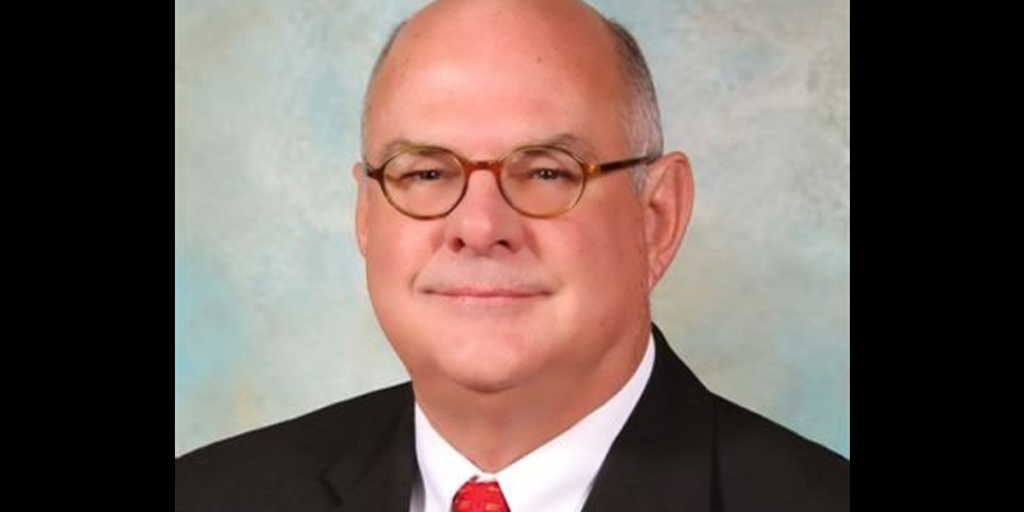
After serving nearly six years on the Montgomery County Board of Education, school board member Durden Dean resigned from his position on Monday. He was first elected to the District 2 seat in 2012. Dean, a former mayor of Union Springs, Ala., notified Superintendent Ann Roy Moore and along with board members via email Monday morning explaining he was planning to move to North Carolina with his wife. Dr. Moore & MPS Board: It is with mixed emotions that I am notifying you and my fellow board members of my resignation immediately from the MPS Board. I have already notified board President Robert Porterfield. My wife and I have been planning for some time to move to North Caroline to be near our daughter and grandchildren and that has come about sooner than originally anticipated. It has been one of the greatest honors of my life to serve the children of Montgomery and I know I am leaving the MPS family in VERY capable hands under your leadership! I mean that very sincerely! Thank you so much for your dedication and wishing you and the board much success for our children going forward! With kindest regards, Durden The school board will pick Dean’s successor, but must first wait 48 hours following his resignation.
New IRS rules may hurt Alabama’s private school scholarship program
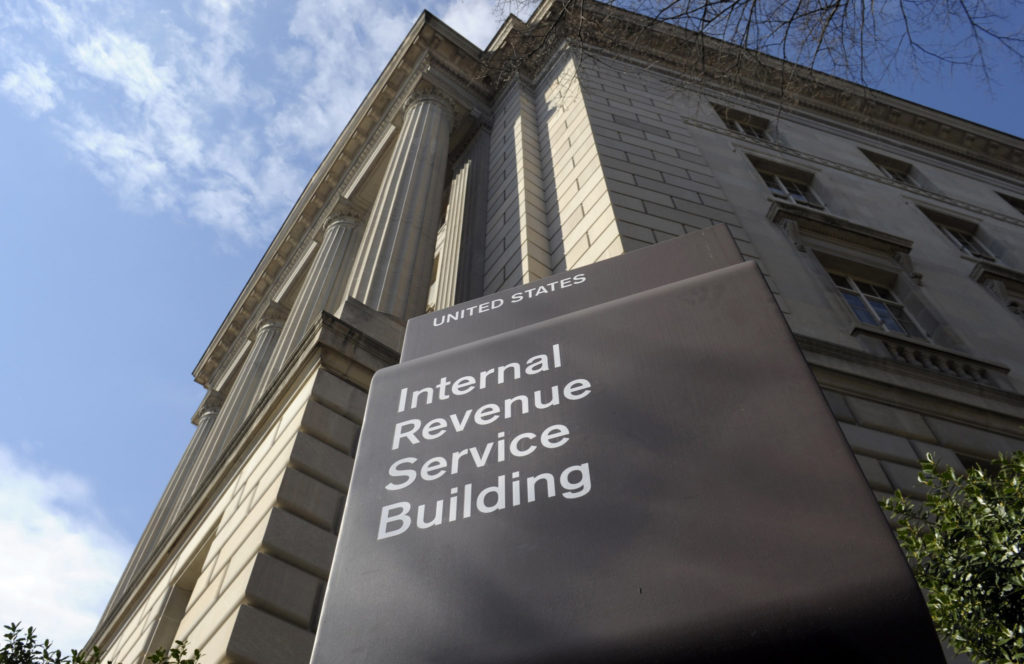
Advocates of a state-supported private school scholarship program are concerned that donations could drop under proposed new IRS rules. The program, known as the Alabama Accountability Act, gives donors an income tax break for donations to groups that provide private school scholarships. Currently, donors get a dollar-for-dollar reduction on their state income tax bill, and can also claim a federal tax deduction. The rules proposed last week would end the ability for large donors to claim the federal tax deduction in addition to the 100 percent tax credit. Lesley Searcy of the Alabama Opportunity Scholarship Fund – which provides scholarships to 1,600 children- said many of the affected donors “are the very ones who support our students.” The program provides private school scholarships for nearly 2,000 children across the state. Republished with permission from the Associated Press.
Birmingham hosts Smart Cities Readiness Workshop

Strategic plans for how Birmingham will become a smart city are being laid out over the next two days during the Smart Cities Readiness Workshop. The workshop is part of the Smart Cities grant awarded to the city of Birmingham earlier this year. “I believe our city is in the middle of an evolution that is really changing what and how we are doing things in our city,” Birmingham Mayor Randall Woodfin said in his opening remarks. “This is fueled by the Smart Cities grant, which helps us become a more inclusive and competitive government. This gives us the opportunity to integrate our systems and raise the bar for tech and innovation, as well as provide more coordinated, user-centered services for our residents and small business owners.” The workshop aims to use technology and data to improve public safety and quality of life in Birmingham. Projects underway include smart street lighting, bus rapid transit and community Wi-Fi. Strategy sessions will address community health, transportation and mobility and economic empowerment. Birmingham hosts Smart Cities Readiness Workshop to address key issues from Alabama NewsCenter on Vimeo. Woodfin stressed the importance of the partnership that collaborated to win the grant, saying it took a coalition to obtain the grants, and it will take a coalition to do the work. “Alabama Power and the University of Alabama at Birmingham partnered with the city of Birmingham with additional support from the Birmingham-Jefferson County Transit Authority, the Jefferson County Commission and the city of Hoover,” Woodfin said. “These coordinated strategies helped secure Birmingham’s winning application. We’re here because of all your hard work. And on behalf of the residents of Birmingham, we thank you.” To speak on the importance of this partnership, Alabama Power’s Vice President of Birmingham Division Jonathan Porter and the University of Alabama at Birmingham’s President Dr. Ray Watts were on hand to give remarks. “Mayor Woodfin and I are both natives of Birmingham and we are serious about serving our people,” Watts said. “We’re going to do that with the great resources of UAB. Partnering with the city and Alabama Power, really there is no limit to what we can do.” “The ongoing dialogue and discussion that will take place over the next few days during the workshop – and the strong collaboration to follow – will set the stage for Birmingham to become a better place to live and work while improving social equity and economic competitiveness,” Porter said. “These efforts will ultimately incorporate digital technology to help improve public safety, community health, economic empowerment, transportation, energy and more.” Attendees for the workshop include people from both Birmingham’s public and private sectors to provide insight into what they can offer and their thoughts on how Birmingham can use technology and data to tackle local challenges. The first half of the day included presentations from grant partners on smart city initiatives already underway, like smart street lighting. Dr Mashariki addresses Birmingham Smart Cities Readiness workshop from Alabama NewsCenter on Vimeo. Dr. Amen Ra Mashariki shared best practices on how New York City used data to become a smarter city. Mashariki was involved in numerous smart city initiatives as the chief analytics officer and head of Urban Analytics for New York City. “Our job was to be responsive to problems that cropped up on a daily basis that operational agencies needed help with,” Mashariki said. “Data analytics helps drive efficiency toward a city’s operations.” The day concluded with breakout sessions to develop strategic plans. The areas of focus were transportation, economic empowerment and community health. You can check out the entire opening program below. Republished with the permission of the Alabama Newscenter.
Court upholds former Alabama House speaker Mike Hubbard’s ethics convictions
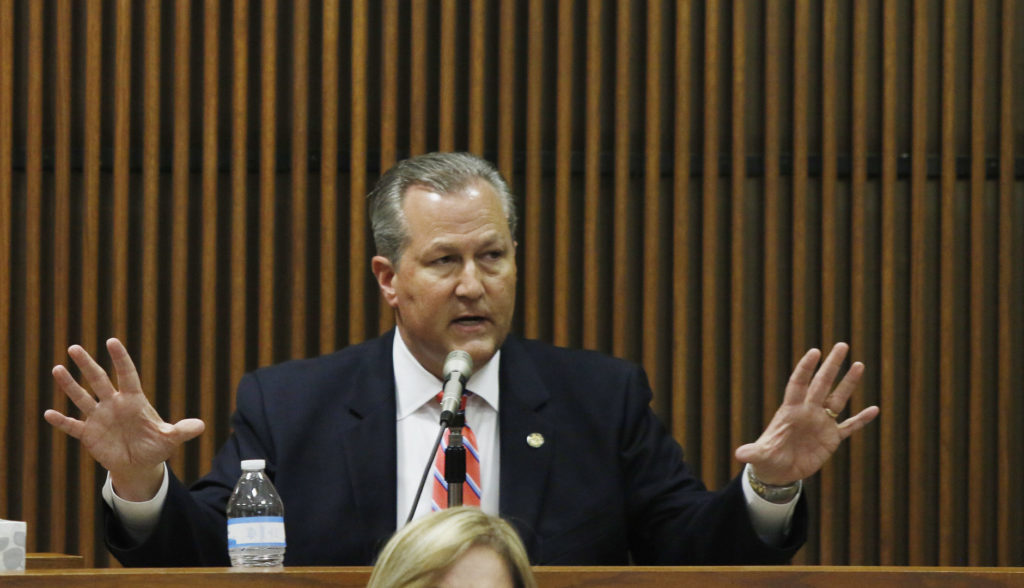
An appellate court on Monday upheld the ethics conviction of former Alabama House Speaker Mike Hubbard, whose rising political career came to a crashing halt in 2016 when he was found guilty of using his office to benefit his businesses. The Alabama Court of Criminal Appeals affirmed 11 of the 12 counts against Hubbard. In its 154-page decision, the court ruled there was sufficient evidence to convict Hubbard on those counts, including that he improperly asked lobbyists and company executives for both consulting work and investments in his debt-ridden printing business. The heavily anticipated decision was a blow for the Hubbard defense, which had argued that prosecutors acted improperly and stretched the intent of the state’s ethics statute, and a victory for state prosecutors who had argued Hubbard behaved corruptly. “I’m in shock,” Hubbard defense attorney Bill Baxley said Monday afternoon. Baxley said he was just beginning to review the decision, but would recommend that Hubbard appeal to the Alabama Supreme Court. Mike Lewis, a spokesman for Alabama Attorney General Steve Marshall, said the office was reviewing the decision and did not have an immediate comment. Hubbard, from Auburn, was for years one of the state’s most influential Republicans. He served as chairman of the Alabama Republican Party and was a key architect of the GOP strategy that led to Republicans in 2010 taking control of the Alabama Legislature for the first time in more than a century. He was indicted, and later convicted on ethics charges that he used the mantle of his office to help his businesses. He was automatically removed from office when he was convicted on the felony charges. Several of the counts against Hubbard accuse him of violating a ban on public officials soliciting things of “value” from company “principals.” A principal under state law is a person or business who employs a lobbyist to influence the Alabama Legislature. The court rejected Hubbard’s arguments that the transactions were aboveboard business dealings in which investors and companies that employed him were getting a getting a fair value for their money. “The language of the statute here is clear and unambiguous. Hubbard, as a public official, was prohibited from soliciting or receiving a thing of value from a principal,” the court wrote. The court also rejected arguments by the former speaker that the prosecution was tainted by prosecutorial and juror misconduct. While upholding 11 of the 12 counts against Hubbard, the court scolded legislators for what it described as ambiguities in the state ethics law. “We strongly encourage the legislature to consider amending the law to better circumscribe the class of persons defined as principals, and to more clearly explain several of the other 34 definitions embodied in (the ethics law). … The language of Alabama’s ethics law should be clear as to which persons, businesses, and acts fall within its reach,” judges wrote. The court reversed one count: that Hubbard should have known he had a conflict of interest when he voted on a budget bill containing language that could have possibly benefited one of his clients. A judge sentenced Hubbard to four years in prison, but he is free on bond as he appeals. Republished with the permission of the Associated Press.


